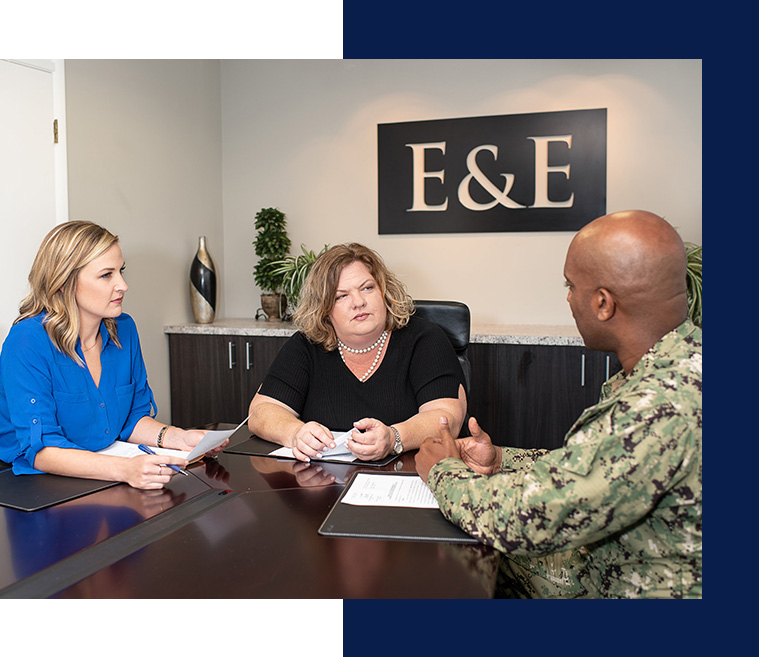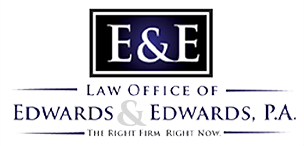
Jacksonville Chapter 7 Bankruptcy Lawyers
Unmanageable debt can wreak havoc on your personal or entrepreneurial plans, goals, and general wellbeing. If you aren’t able to address the situation right away, you might find yourself at the mercy of relentless creditors. You could be considering selling your property to make ends meet. Alternatively, you might be looking for a debt-relief strategy that will protect your business and other assets.
For many, Chapter 7 is the best way to substantially reduce debt in a matter of months. At Edwards & Edwards, P.A., we have more than 65 years of combined experience, which is why we are fully equipped to determine whether it is the solution you need. While both consumers and businesses can file, not everyone will qualify, and it might not be right for your particular situation. That said, Chapter 7 provides invaluable relief for hundreds of thousands of filers each year. If we believe that filing is the most appropriate strategy for you, we can help you navigate this process with ease.
Don’t wait to begin your debt-relief process. Call (904) 478-9255 or contact us online to schedule an initial consultation with a Jacksonville Chapter 7 lawyer today.
Chapter 7 for Consumers
When you file Chapter 7 as an individual, you will immediately benefit from the protection of a court order called the automatic stay, which stops creditors from pursuing your debt in any way. The court then begins a liquidation process, in which the trustee sells your nonexempt assets to repay creditors. After this process, the court can discharge any unsecured debt that wasn’t covered by the proceeds from the liquidation process.
Dischargeable debts generally include:
- Medical bills
- Credit card debt
- Unpaid utility bills
- Unsecured personal loans
While Chapter 7 is often called “liquidation bankruptcy,” the truth is that most people who file Chapter 7 can obtain a debt discharge without losing anything they own. This is because the trustee can only sell your nonexempt assets, which refer to any property you cannot protect with state or federal bankruptcy exemptions. When you claim an exemption, you are shielding a designated asset or possession from the liquidation process.
How to Qualify for Chapter 7
To qualify for Chapter 7 as an individual, you must pass the means test. As a general rule of thumb, you must make less than your state’s median income for a household the same size as yours. However, the means test also considers your property and expenses, so you might qualify even if you make more than the median income. Our Jacksonville bankruptcy attorneys can explain more when you give us a call for your free, confidential consultation.
Additional qualifications for Chapter 7 include:
- Completing a credit counseling course approved by the U.S. Trustee Program within 180 days of filing.
- You have not had debt discharged from a previous filing.
- You do not have a bankruptcy case that was dismissed in the last 180 days.
- The bankruptcy court does not suspect that you are cheating creditors.
Can You File for Chapter 7 Bankruptcy Again?
If you have already filed for Chapter 7 bankruptcy and are looking to file again, you will have to wait eight years from the filing date of your previous Chapter 7 bankruptcy before you can file again.
You can file for Chapter 7 bankruptcy after six years from the filing date if you previously filed for Chapter 13. However, an exception is if you’ve paid all of your unsecured debts, or at least 70%, and you filed for Chapter 13 in good faith.
What Are the Differences Between Chapter 7 and Chapter 13 Bankruptcies?
Bankruptcy is a legal process designed to help individuals and businesses overcome overwhelming debt and obtain a fresh financial start. In Jacksonville, individuals typically file for bankruptcy under either Chapter 7 or Chapter 13 of the U.S. Bankruptcy Code. While both chapters offer relief from debt, they operate differently and are suitable for different financial situations.
Chapter 7 Bankruptcy, also known as "liquidation bankruptcy," involves the sale of a debtor's non-exempt assets to pay off creditors. However, many individuals filing for Chapter 7 bankruptcy in Jacksonville can protect most, if not all, of their assets through Florida's generous exemptions. This means that most debtors do not have to worry about losing their home, car, or personal belongings. Chapter 7 bankruptcy is typically ideal for individuals with limited income and a significant amount of unsecured debt, such as credit card debt or medical bills.
On the other hand, Chapter 13 Bankruptcy, also called a "reorganization bankruptcy," involves creating a repayment plan to pay back creditors over a period of three to five years. This chapter is suitable for individuals with a steady income who want to keep their assets and catch up on past due payments, such as a mortgage or car loans. Chapter 13 allows debtors to consolidate their debts into one manageable monthly payment, often at a reduced interest rate. Additionally, Chapter 13 offers certain benefits not available under Chapter 7, such as the ability to strip off second mortgages or cram down car loan balances to the value of the vehicle.
Choosing between Chapter 7 and Chapter 13 bankruptcy requires careful consideration of individual circumstances and financial goals. Consulting with an experienced Jacksonville bankruptcy lawyer is crucial to determine the most appropriate course of action. Whether seeking immediate debt relief through Chapter 7 or implementing a structured repayment plan with Chapter 13, knowledgeable legal guidance can navigate individuals towards a brighter financial future.
How We Can Help
Our Jacksonville Chapter 7 bankruptcy lawyers at Edwards & Edwards, P.A. can help you perform these calculations to determine your eligibility. If you qualify, you will need to complete credit counseling and financial management courses through an accredited agency. If you don’t qualify (or if Chapter 7 won’t provide the relief you need), you might consider Chapter 13 instead.
Learn more about how our Jacksonville Chapter 7 Bankruptcy lawyers can help you by contacting us online or calling (904) 478-9255 today!
Chapter 7 for Businesses
Under Chapter 7, businesses benefit from the automatic stay as well. This is particularly powerful because the Fair Debt Collection Practices Act only protects consumers (not businesses) from unfair, deceptive, and abusive collection tactics. If you are facing harassment for business debts, bankruptcy is generally the only way to end this treatment.
Like consumers, businesses benefit from a relatively fast process under Chapter 7 (i.e. 4-6 months). However, this is generally where the similarities end. Chapter 7 for businesses does not involve a means test, and it does not require credit counseling and financial management courses. More critically, Chapter 7 does not result in a discharge of business debts. Instead, Chapter 7 liquidates business entities entirely, using the proceeds to repay creditors by order of priority under the Bankruptcy Code.
If you are filing as a sole proprietor, however, you are personally liable for both personal and business debts. As such, you can likely experience the same benefits Chapter 7 provides for consumers. If you are filing as a business entity and you don’t want to lose your company, you may consider Chapter 11 bankruptcy instead (or Subchapter V of Chapter 11, which is specifically for small businesses).
The Level of Support You Deserve
Founded in 2013, Edwards & Edwards, P.A. has helped innumerable individuals, families, and businesses overcome seemingly insurmountable financial obstacles. Bankruptcy is designed to give the honest debtor a fresh start, and our job is to help you maximize the benefits of this new beginning while minimizing the risks. With over half a century’s worth of combined experience, our attorneys can provide the knowledgeable and strategic counsel you need, along with the empathetic and client-focused support you deserve.
Contact our Jacksonville Chapter 7 Bankruptcy Attorneys online or by calling (904) 478-9255 today!

The Sisters-at-Law are On Your Side
What Sets Us Apart

-
Over 65 Years of Combined Experience
-
Wide Range of Legal Services Available
-
Responsive to Client Communication
-
Sister-Owned Firm, Entirely Run by Women





